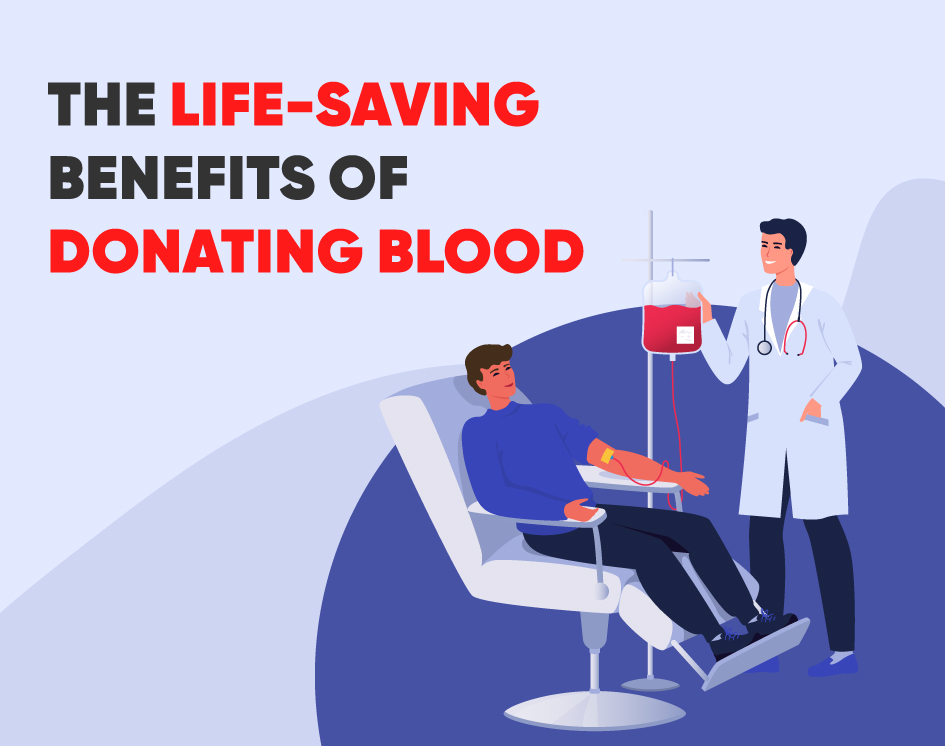Benefits of Giving Blood
Welcome to our comprehensive guide on the benefits of giving blood. At [Your Website Name], we believe in the power of blood donation to save lives and improve the overall well-being of both donors and recipients. In this article, we will delve into the numerous advantages of donating blood, highlighting its impact on health, society, and personal fulfillment.
Improved Physical Health
Regular blood donation offers several benefits for your physical health. Firstly, it helps in maintaining healthy iron levels. Excessive iron accumulation in the body can lead to various health issues, including liver damage and heart problems. By donating blood, you can reduce the risk of such conditions and promote a healthier circulatory system.
Secondly, donating blood can help in the prevention of cardiovascular diseases. High levels of iron in the blood can contribute to the formation of free radicals, which can damage blood vessels and increase the risk of heart disease. By donating blood, you can help maintain optimal iron levels and reduce the chances of cardiovascular issues.
Enhanced Mental Well-being
In addition to the physical benefits, donating blood can have a positive impact on your mental well-being. Research suggests that acts of altruism, such as blood donation, can improve psychological well-being and reduce stress levels. Knowing that you are making a difference in someone’s life can provide a sense of fulfillment and purpose, boosting your overall mood and mental health.
Community Impact
One of the significant benefits of giving blood is its impact on the community. Blood donations are essential for medical procedures, emergencies, and individuals with chronic illnesses. By donating blood, you are directly contributing to the well-being and survival of others. Your act of kindness can save lives, support medical advancements, and create a stronger, healthier community.
The Donation Process
Donating blood is a simple and safe process that typically takes around 30-45 minutes. The procedure involves a series of steps, including registration, medical history screening, and the actual blood donation. Before donating, make sure to eat a healthy meal, stay hydrated, and get a good night’s sleep. Following the donation, you may enjoy refreshments and rest for a short while to ensure your well-being.
Eligibility and Safety
To ensure the safety of both donors and recipients, certain eligibility criteria must be met before donating blood. Common requirements include being in good health, having a minimum age of 17 or 18 (depending on the country), and meeting weight and hemoglobin level guidelines. It is important to follow these guidelines to guarantee a safe and effective blood donation process.

Giving blood is a selfless act that offers numerous benefits to both the donor and the community. From improved physical health to enhanced mental well-being, the advantages of donating blood are undeniable. By becoming a regular blood donor, you can make a significant impact on the lives of others while enjoying the personal satisfaction that comes with helping those in need. Join us in this noble cause and experience the transformative power of blood donation.
Frequently Asked Questions Benefits of Giving Blood
1. Why should I consider donating blood?
Donating blood can save lives. It helps patients who have undergone surgeries, experienced trauma or have certain medical conditions that require blood transfusions.
2. How often can I donate blood?
In most countries, you can donate blood every 8 to 12 weeks, depending on your health and eligibility.
3. Does donating blood have any health benefits for the donor?
Yes, donating blood can have health benefits for the donor. It stimulates the production of new blood cells, reduces the risk of certain cancers, and helps maintain healthy iron levels.
4. Can donating blood help in detecting any underlying health conditions?
Yes, during the donation process, your blood is tested for various diseases such as HIV, hepatitis, and other infections. If any abnormalities are detected, you will be notified for further medical evaluation.
5. Is there any age limit for donating blood?
The age limit for blood donation varies by country, but generally, you must be at least 17 or 18 years old to donate blood. Some countries may have upper age limits as well.
6. Can donating blood help in maintaining a healthy weight?
Yes, donating blood burns calories. While it should not be considered a weight-loss strategy, it can contribute to overall calorie expenditure.
7. Are there any potential side effects of donating blood?
Common side effects of donating blood include dizziness, fatigue, and bruising at the needle insertion site. These are usually mild and temporary.
8. Can I donate blood if I have a chronic medical condition?
It depends on the specific medical condition. Some conditions may restrict blood donation, while others may not. It is important to check with your healthcare provider or the blood donation center for guidance.
9. How long does the blood donation process usually take?
The entire blood donation process, including registration, screening, and the actual donation, usually takes about an hour.
10. Can I donate blood if I recently got a tattoo or piercing?
Depending on the country and specific regulations, there may be a waiting period after getting a tattoo or piercing before you can donate blood. This is to ensure the safety of both the donor and the recipient.




